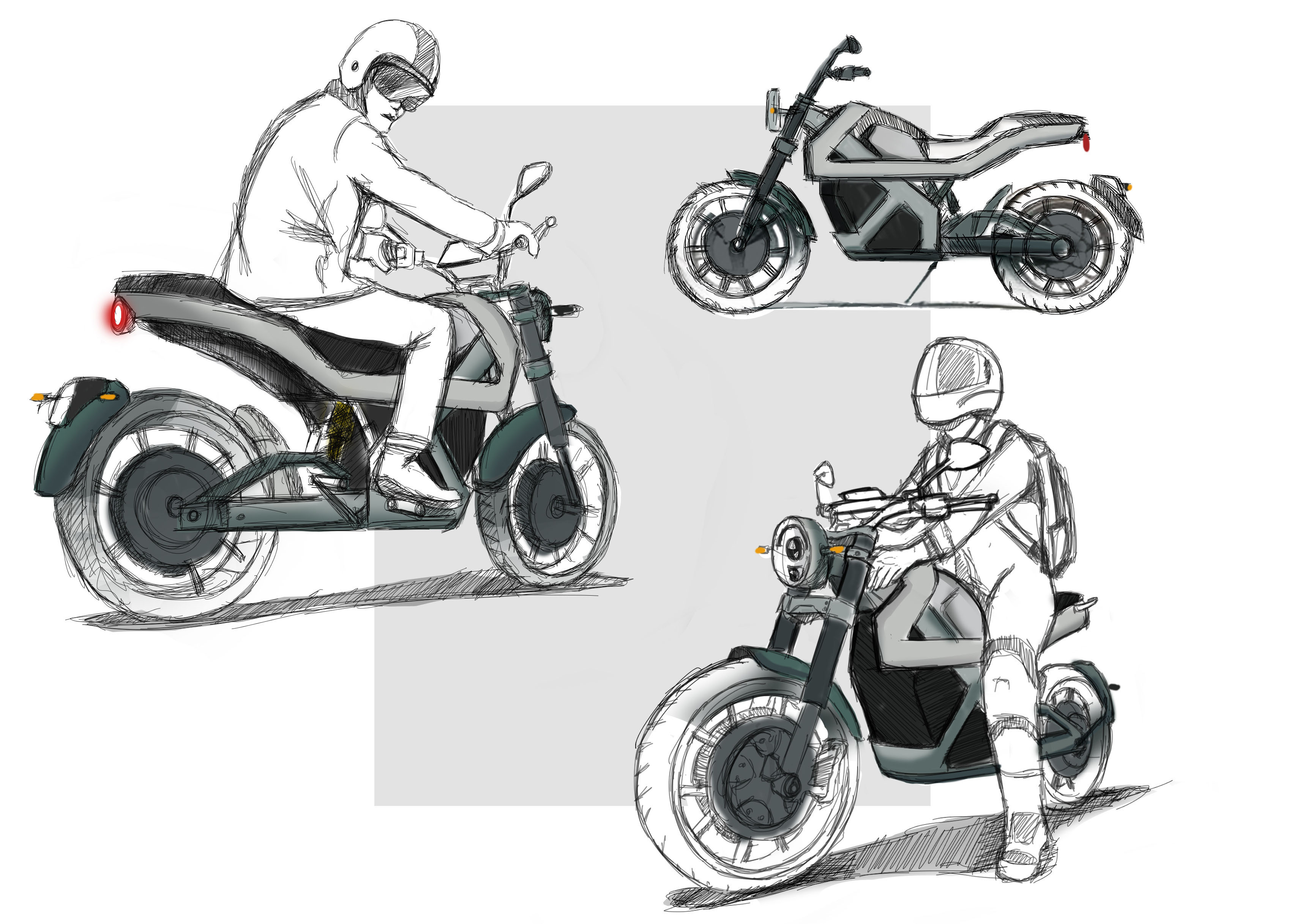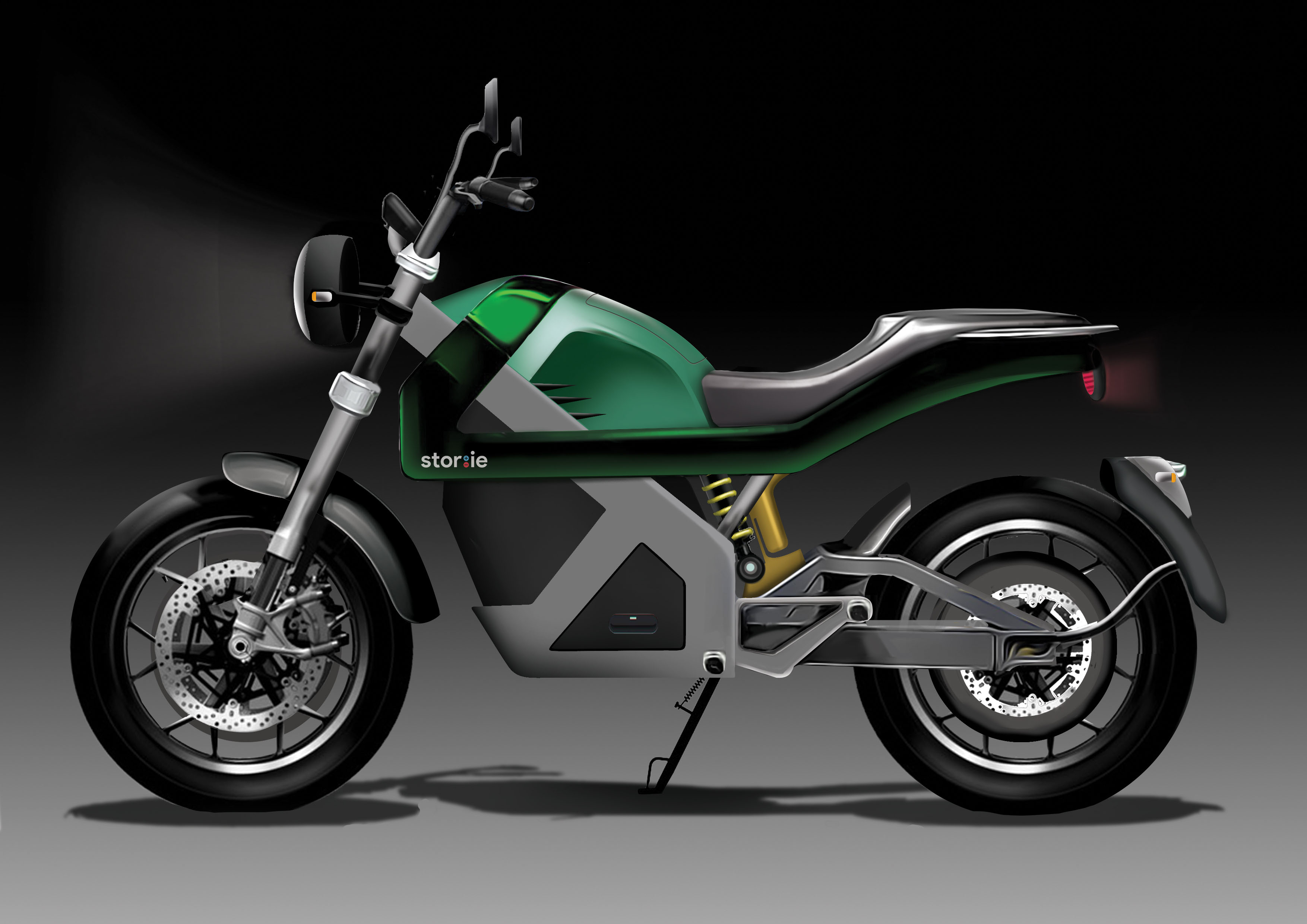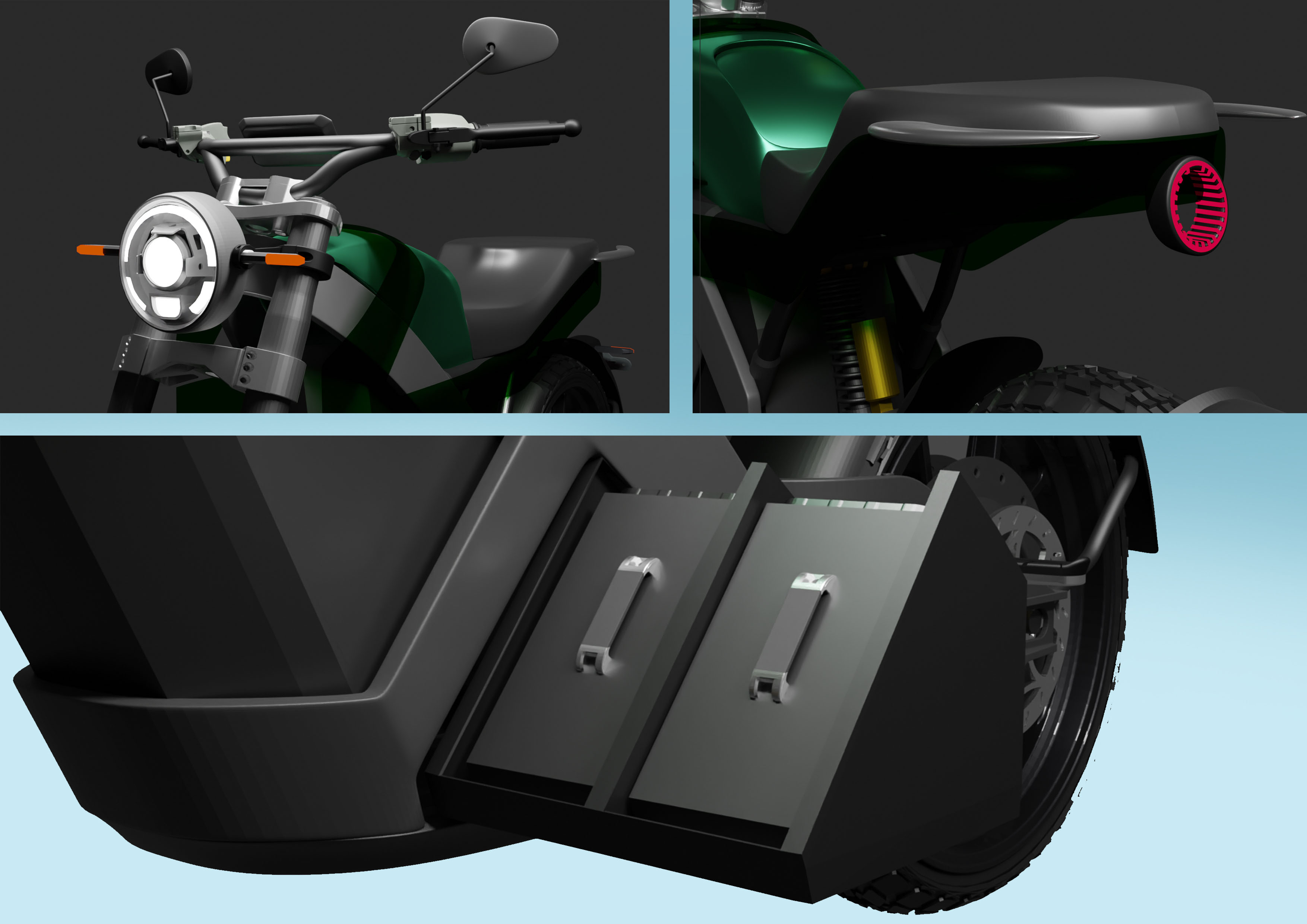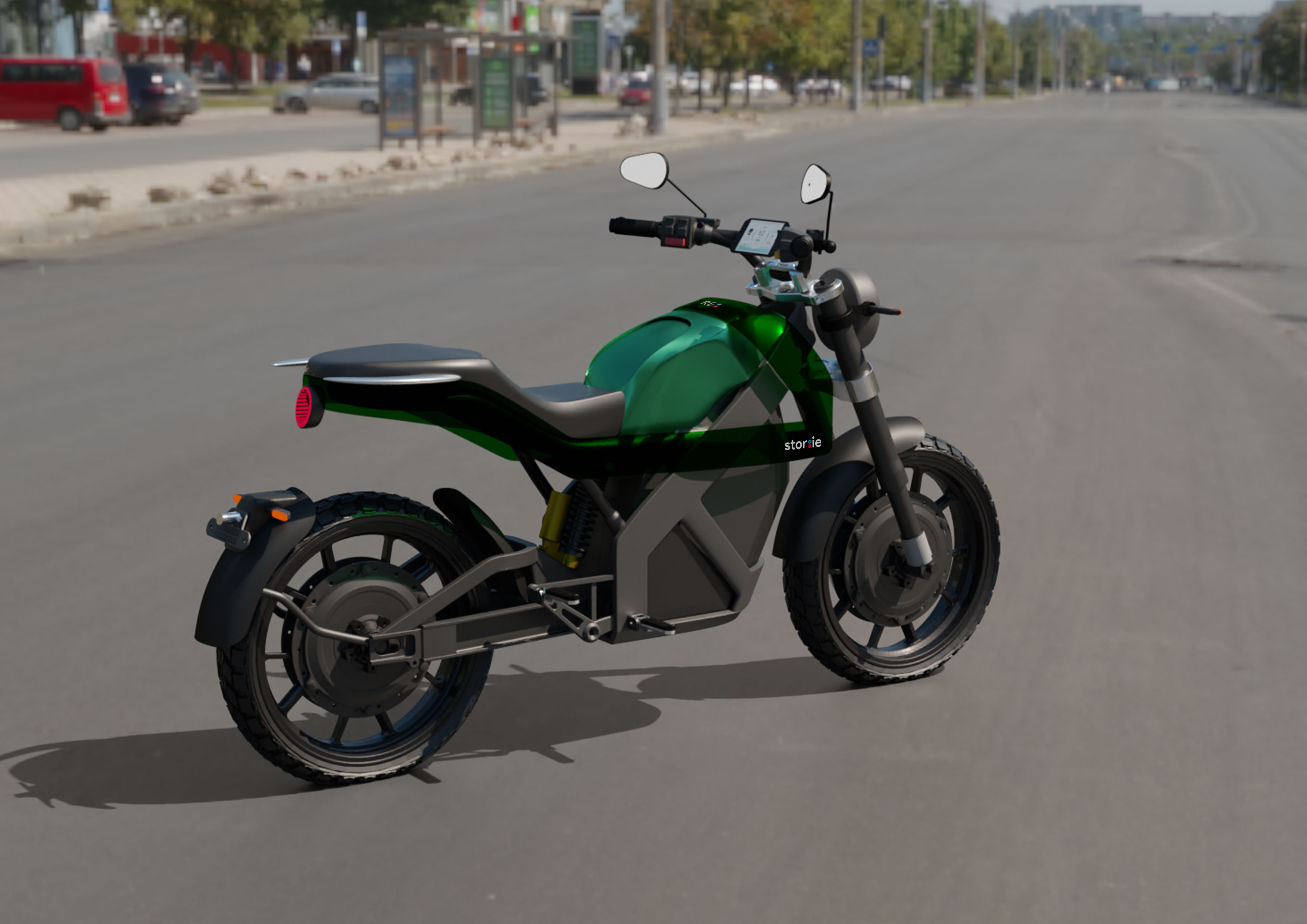
India, with its rapidly growing population and urbanization, is facing significant challenges related to transportation, particularly with regard to air pollution and congestion. Electric motorcycles offer a promising solution to these challenges, providing a cleaner and more sustainable mode of transportation. This thesis aims to explore the design possibilities of an electric motorcycle for India in the year 2030, with a focus on meeting the needs and preferences of Indian consumers.
The year 2030 marks a significant milestone in India’s efforts to promote sustainable mobility, with a target of achieving 40% electric vehicle penetration by that year. The electric motorcycle market in India is expected to grow rapidly, presenting an opportunity for manufacturers to design products that cater to the unique needs and challenges of the Indian market. The proposed thesis will investigate how electric motorcycles can be designed to meet these challenges while also promoting sustainable transportation.
The proposed research will also consider the social and cultural factors that influence consumer behaviour in India. This includes an examination of the role of marketing and branding in promoting electric motorcycles, as well as the potential for collaboration between manufacturers, government, and civil society organizations to promote sustainable mobility. The study will also consider the broader economic and environmental implications of the transition to electric motorcycles, including the potential for job creation and reductions in carbon emissions.
The study will generate insights and recommendations that can be applied to future electric motorcycle designs in India and other developing countries, helping to accelerate the transition to a low-carbon, sustainable transportation system. The proposed research has the potential to make a significant contribution to the field of sustainable design and could help shape the future of mobility in India and beyond.



